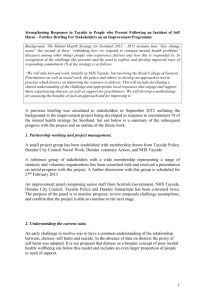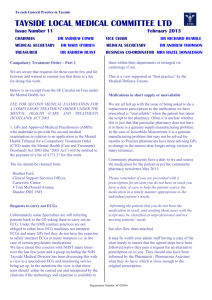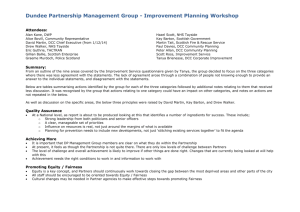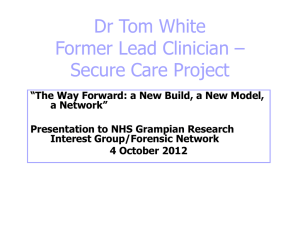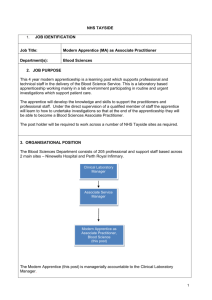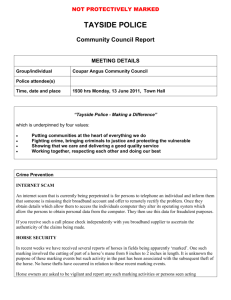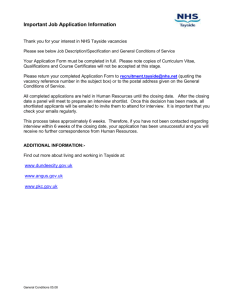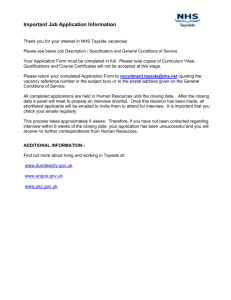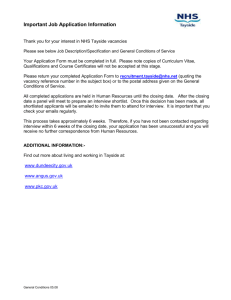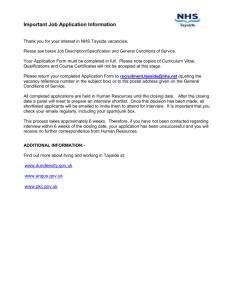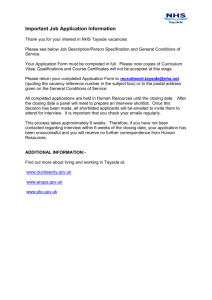Stakeholders Briefing Sept 12 Commitment 19 Mental Health
advertisement
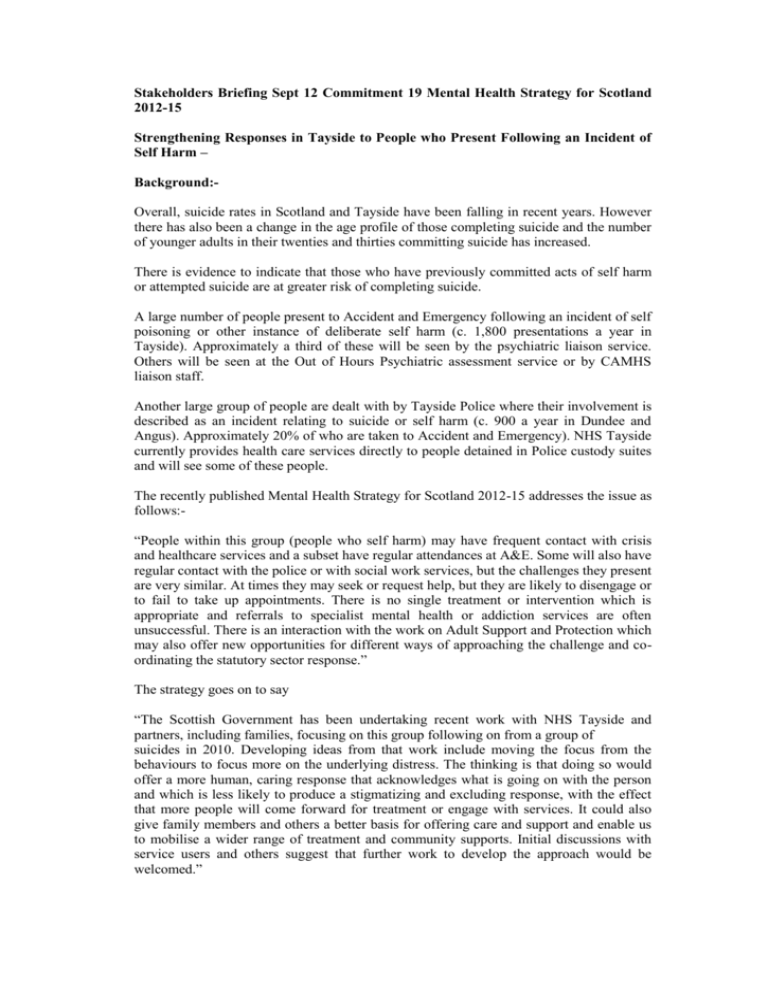
Stakeholders Briefing Sept 12 Commitment 19 Mental Health Strategy for Scotland 2012-15 Strengthening Responses in Tayside to People who Present Following an Incident of Self Harm – Background:Overall, suicide rates in Scotland and Tayside have been falling in recent years. However there has also been a change in the age profile of those completing suicide and the number of younger adults in their twenties and thirties committing suicide has increased. There is evidence to indicate that those who have previously committed acts of self harm or attempted suicide are at greater risk of completing suicide. A large number of people present to Accident and Emergency following an incident of self poisoning or other instance of deliberate self harm (c. 1,800 presentations a year in Tayside). Approximately a third of these will be seen by the psychiatric liaison service. Others will be seen at the Out of Hours Psychiatric assessment service or by CAMHS liaison staff. Another large group of people are dealt with by Tayside Police where their involvement is described as an incident relating to suicide or self harm (c. 900 a year in Dundee and Angus). Approximately 20% of who are taken to Accident and Emergency). NHS Tayside currently provides health care services directly to people detained in Police custody suites and will see some of these people. The recently published Mental Health Strategy for Scotland 2012-15 addresses the issue as follows:“People within this group (people who self harm) may have frequent contact with crisis and healthcare services and a subset have regular attendances at A&E. Some will also have regular contact with the police or with social work services, but the challenges they present are very similar. At times they may seek or request help, but they are likely to disengage or to fail to take up appointments. There is no single treatment or intervention which is appropriate and referrals to specialist mental health or addiction services are often unsuccessful. There is an interaction with the work on Adult Support and Protection which may also offer new opportunities for different ways of approaching the challenge and coordinating the statutory sector response.” The strategy goes on to say “The Scottish Government has been undertaking recent work with NHS Tayside and partners, including families, focusing on this group following on from a group of suicides in 2010. Developing ideas from that work include moving the focus from the behaviours to focus more on the underlying distress. The thinking is that doing so would offer a more human, caring response that acknowledges what is going on with the person and which is less likely to produce a stigmatizing and excluding response, with the effect that more people will come forward for treatment or engage with services. It could also give family members and others a better basis for offering care and support and enable us to mobilise a wider range of treatment and community supports. Initial discussions with service users and others suggest that further work to develop the approach would be welcomed.” Commitment 19: We will take forward work, initially in NHS Tayside, but involving the Royal College of General Practitioners as well as social work, the police and others, to develop an approach to test in practice which focuses on improving the response to distress. This will include developing a shared understanding of the challenge and appropriate local responses that engage and support those experiencing distress, as well as support for practitioners. We will develop a methodology for assessing the benefits of such an approach and for improving it The Improvement Proposal A significant number of people who can be described as at greater risk of completing suicide pass through the hands of NHS Tayside. Many of these also match the description of people in distress articulated in the Mental Health Strategy. It is not clear how many of them receive or are offered an intervention aimed at reducing their risk of further self harm or suicide. Of those who receive or are offered an intervention it is not clear whether this is all that might reasonably be done to reduce their risk or to reduce their distress. An improvement programme designed to work from the current state to a position where a larger proportion of this higher risk group are provided with an intervention appropriate to their circumstances is likely to reduce the incidence of repeated self harm and risk of suicide. NHS Tayside has given a commitment to lead this piece of work. They will be supported in this by the Scottish Government and key local partners. Staff and supports are currently being put in place to deliver the project. In collaboration with the Angus and Dundee Joint Choose Life steering group an initial stakeholders meeting involving the steering group members who come from a range of statutory agencies and third sector organisations, the Scottish Government and NHS Tayside staff is to be held on 30August with a view to a first improvement panel being convened in early Autumn. Initially the work will focus on the City of Dundee. As part of the process we will engage with people directly affected by these issues. We will also engage with staff from across the NHS and other organisations. Periodic briefings on progress will be provided to keep people informed. Neil C. Fraser Strategy and Performance Manager NHS Tayside 17th August 2012

